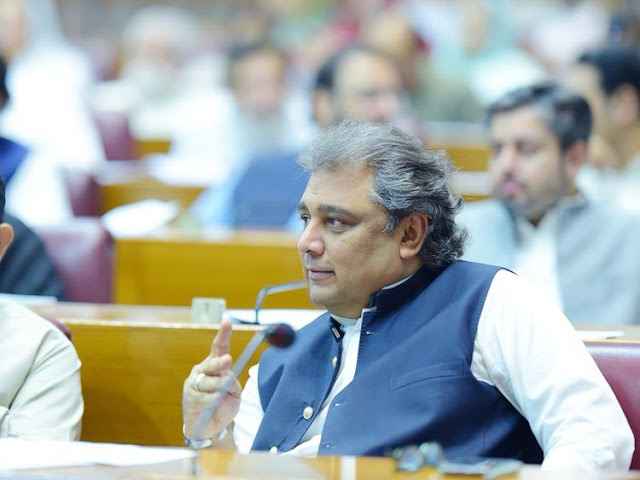In a recent turn of events in the political landscape of Pakistan, the eligibility of the Istehkam e Pakistan Party for participation in the upcoming general elections has come under scrutiny. This article will delve into the intricacies of the situation, exploring the reasons behind this controversy and the potential implications for the party and the electoral process. Join us on this journey as we uncover the facts and provide insights into the evolving political scenario in Pakistan.
Understanding Istehkam e Pakistan Party
The Istehkam e Pakistan Party, often abbreviated as IEPP, is a relatively new entrant into Pakistan’s political arena. Founded just three years ago, it gained some momentum quickly with its unique ideology and promises of change. However, it is crucial to examine the party’s eligibility to participate in general elections based on the criteria set by Pakistan’s Election Commission.
The Controversial Eligibility Criteria
The Election Commission of Pakistan (ECP) has stringent eligibility criteria that political parties must meet to contest general elections. These criteria include having a minimum number of registered party members, complying with financial transparency requirements, and demonstrating a clear organizational structure. Unfortunately, the Istehkam e Pakistan Party has faced challenges in meeting these criteria.
Lack of Adequate Membership
One of the primary issues hampering the IEPP’s eligibility is its limited membership base. To participate in general elections, a political party must have a significant number of registered members across different regions of the country. The IEPP has struggled to expand its membership beyond a particular demographic, which raises concerns about its national appeal.
Transparency Concerns
Transparency and financial accountability are essential aspects of any political organization. The IEPP has been criticized for its lack of transparency regarding its funding sources and expenditure. This has led to suspicions about the party’s financial integrity, further jeopardizing its eligibility for the upcoming elections.
Legal Battles and Controversies
In addition to the issues surrounding its eligibility criteria, the Istehkam e Pakistan Party has been embroiled in legal battles and controversies. These disputes have drawn significant public attention and have raised questions about the party’s ability to maintain a stable and lawful political presence.
Intra-Party Conflicts
Internal disputes within the IEPP have been well-documented. These conflicts have resulted in factionalism within the party, with different factions making conflicting claims about the party’s leadership and direction. Such divisions can undermine the party’s credibility and cohesion.
Legal Challenges
The IEPP has also faced legal challenges, including allegations of electoral fraud and irregularities in its party structure. These legal battles have not only tarnished the party’s image but have also led to delays in the electoral process.
Implications for the General Elections
The controversy surrounding the Istehkam e Pakistan Party’s eligibility has significant implications for the upcoming general elections in Pakistan. If the party is deemed ineligible, it will not be able to participate in the elections, potentially altering the political landscape.
Impact on Voter Choices
The IEPP has garnered some support from specific segments of the population. Should it be disqualified from the elections, voters who were aligned with the party may need to reconsider their choices. This could influence the overall outcome of the elections.
Strengthening Electoral Integrity
Elections should be conducted with the utmost integrity to maintain public trust in the democratic process. The scrutiny of the IEPP’s eligibility demonstrates that the Election Commission is committed to upholding the standards necessary for free and fair elections.
Conclusion
In conclusion, the Istehkam e Pakistan Party’s eligibility for the general elections in Pakistan is currently under scrutiny due to several factors, including issues related to membership, transparency, legal disputes, and internal conflicts. The outcome of this controversy will have far-reaching implications for both the party and the electoral process in Pakistan. As the situation unfolds, it is essential to keep a close eye on developments and their potential impact on the country’s political landscape.
FAQs
-
Is the Istehkam e Pakistan Party a well-established political entity?
The IEPP is a relatively new party that has gained attention in recent years, but it faces challenges in establishing itself on a national scale.
-
What are the key eligibility criteria for political parties in Pakistan’s general elections?
Political parties must meet criteria related to membership, financial transparency, and organizational structure to be eligible for general elections.
-
Are the legal challenges faced by the IEPP unique to this party?
While legal challenges are not uncommon in politics, the IEPP has faced a notable share of legal disputes and controversies.
-
How might the IEPP’s eligibility controversy affect the electoral landscape?
The outcome of this controversy could influence voter choices and impact the overall integrity of the upcoming general elections.
-
Where can I find more information about the IEPP and the eligibility criteria for political parties in Pakistan?
For more information, you can visit the official website of Pakistan’s Election Commission or consult reputable news sources covering the issue.


GIPHY App Key not set. Please check settings